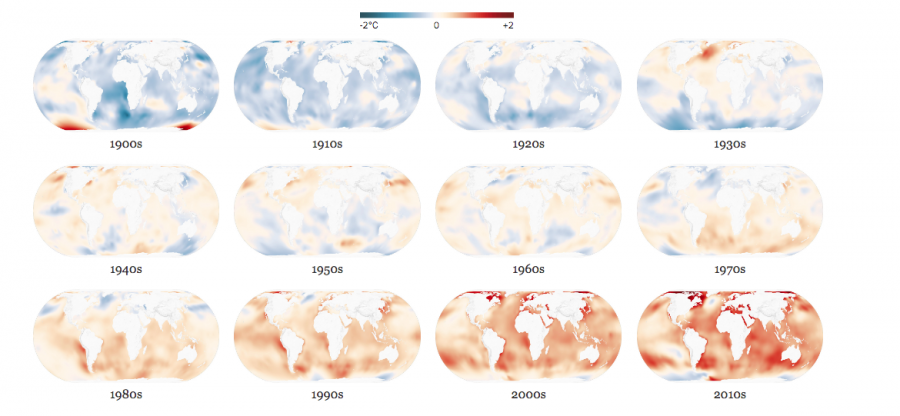Scientists claim that the world’s oceans are warming more quickly that originally thought, with an indication from climate change because the earth’s oceans absorb excess heat and stored inside of them. The ocean serves as a buffer by absorbing 93 percent of greenhouse gases that are being pumped out by humans. Greenhouse gases include carbon dioxide and chlorofluorocarbons.
In fact, oceans are heating up around 40 percent faster on average according to journal Science. “This warming has contributed to increases in rainfall intensity, rising sea levels, the destruction of coral reefs, declining ocean oxygen levels, and declines in ice sheets; glaciers; and ice caps in the polar regions,” the journal states.
As the temperature of the oceans continue to rise, effects such as rising sea levels and the destruction of marine ecosystems will only get worse. Coral reefs will be put under tremendous amounts of stress. More powerful storms (such as Hurricane Harvey and Hurricane Florence in 2018) will become more common and the coastlines will start to flood.
Oceans are included in important research areas for scientists to learn more about climate change. As the oceans continue to warm, sea levels rise because warm water takes up more space than cold water. Most of the sea level rise isn’t due to the melting ice caps, but rather because of thermal expansion.
However, while all hope seems lost when it comes to ocean warming and the destruction of underwater ecosystems, there are small ways you can make a difference.
You can start by using less fertilizer in your yard. While fertilizers are great for your yard, there are nutrients that can leave your yard and disrupt the oceans natural balance.
Another important tip is to use less plastic and start reusing when you can. There’s currently a patch in the ocean that is mostly garbage including plastic bags, garbage bags and plastic bottles. It contributes to habitat destruction and kills tens of thousands of marine animals each year.

































